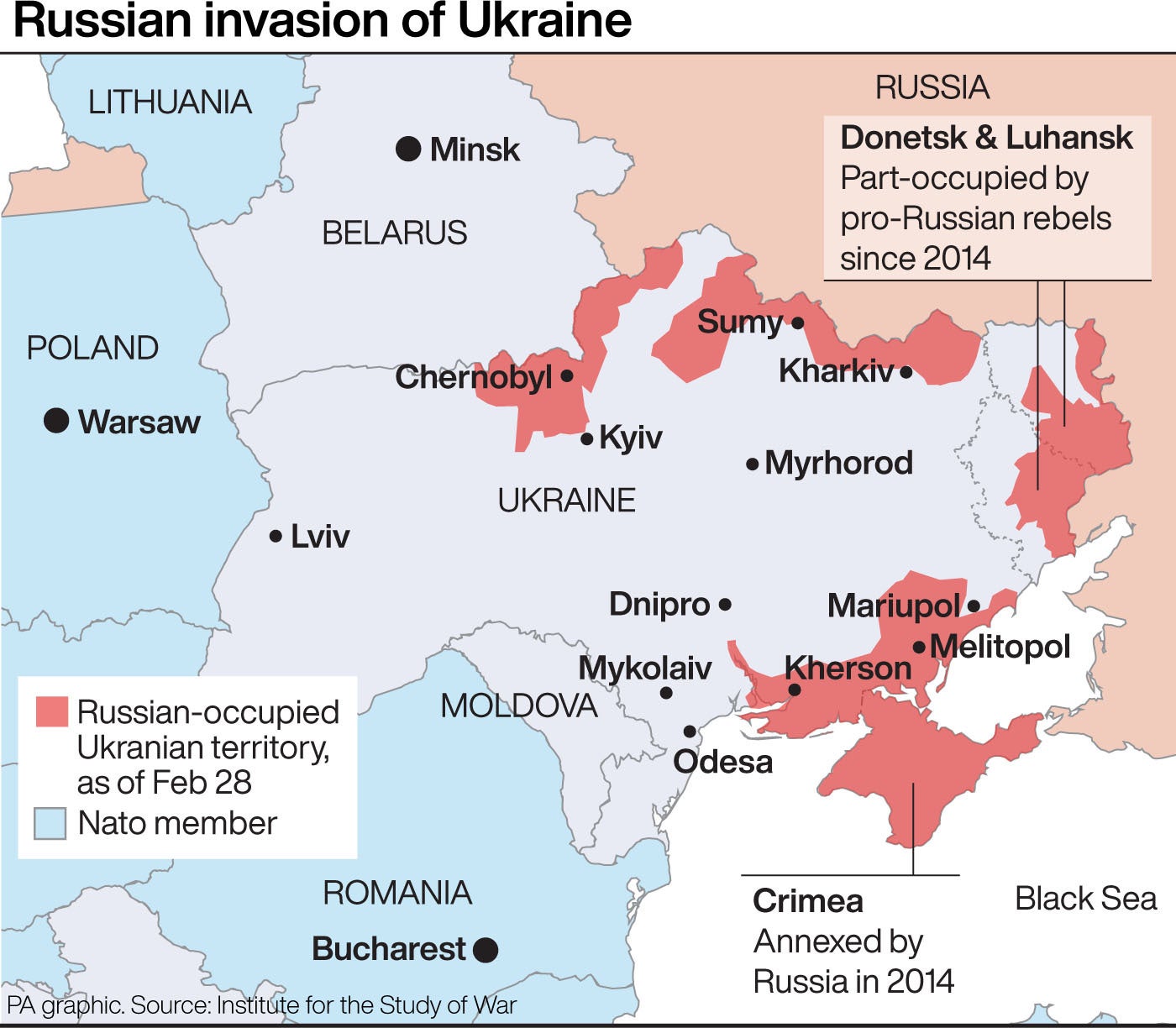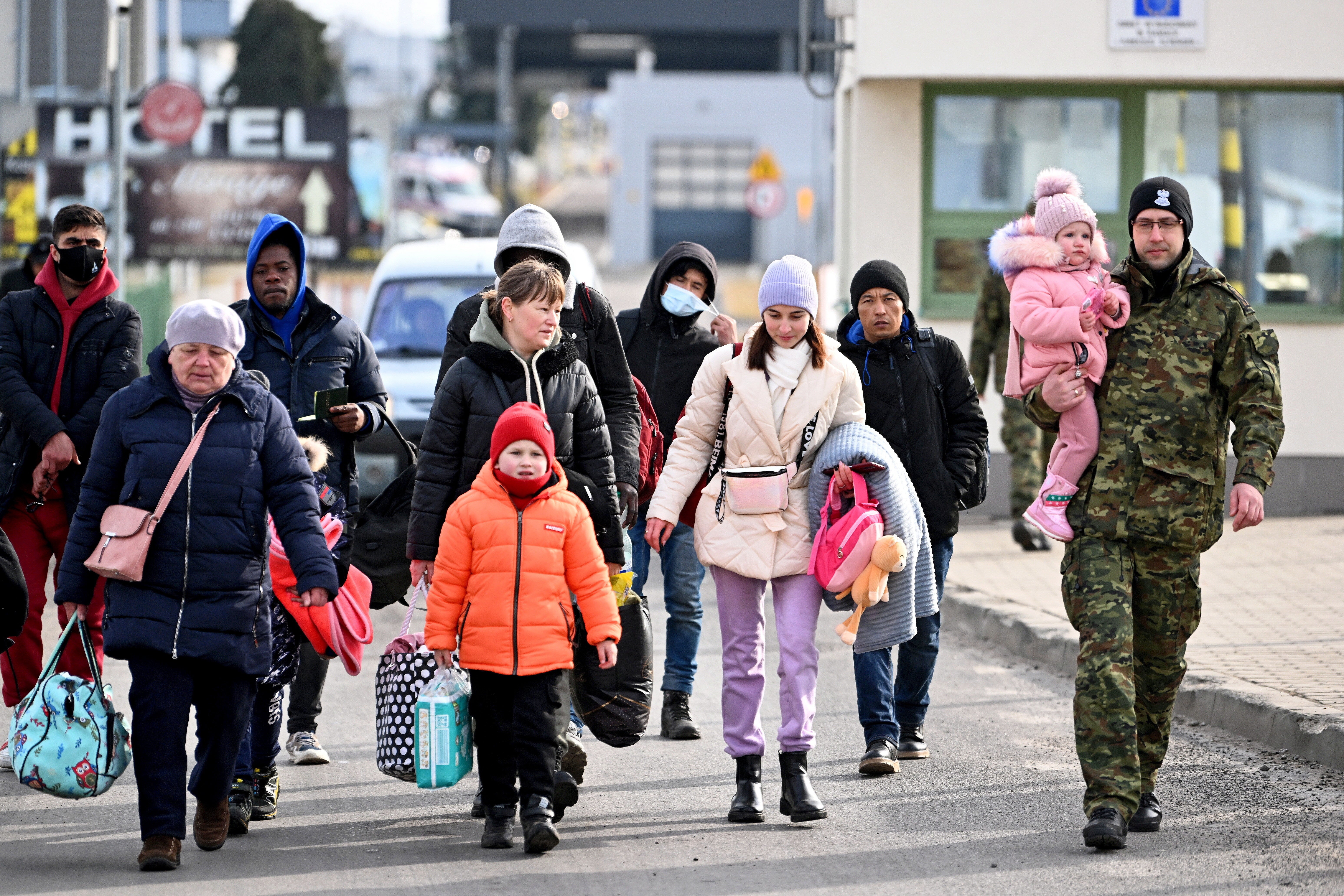660,000 refugees flee Ukraine since Russia invasion as UN predicts ‘largest crisis this century’
Up to four million could leave Ukraine if the war worsens, the UN says
Your support helps us to tell the story
From reproductive rights to climate change to Big Tech, The Independent is on the ground when the story is developing. Whether it's investigating the financials of Elon Musk's pro-Trump PAC or producing our latest documentary, 'The A Word', which shines a light on the American women fighting for reproductive rights, we know how important it is to parse out the facts from the messaging.
At such a critical moment in US history, we need reporters on the ground. Your donation allows us to keep sending journalists to speak to both sides of the story.
The Independent is trusted by Americans across the entire political spectrum. And unlike many other quality news outlets, we choose not to lock Americans out of our reporting and analysis with paywalls. We believe quality journalism should be available to everyone, paid for by those who can afford it.
Your support makes all the difference.At least 660,000 refugees have fled Ukraine for neighbouring countries since Russia invaded last week, the UN said on Tuesday as it forecast “Europe’s largest refugee crisis this century”.
The total rose from half a million on Monday, and is predicted to continue rising. Up to four million could leave Ukraine if the war deteriorates further, the UN believes.
The majority are crossing into Poland, followed by Hungary, Moldova, Romania and Slovakia.
It comes as The Independent launches a campaign, Refugees Welcome, to urge the British government to do more to save lives and protect families.
Shabia Mantoo, a spokeswoman for the UN High Commissioner for Refugees, said "at this rate, the situation looks set to become Europe’s largest refugee crisis this century.”
She said the agency is urging governments to continue to allow access to all those fleeing the war, including non-Ukranian nationals who are also forced to escape the violence.

She said: “We stress that there must be no discrimination against any person or group.”
Her comments follow reports that non-Ukranian nationals, such as those from Africa or the Middle East, have faced discrimination and racism when trying to flee the country and have even been refused entry to public transport services.
One man, a father-of-three from Nigeria named Osarumen, told The Independent that he, his family and other migrants were told “no blacks” and asked to get a bus about to leave Ukraine.
“In all of my years as an activist, I have never seen anything like this. When I look into the eyes of those who are turning us away, I see bloodshot racism - they want to save themselves and they are losing their humanity in the process,” he said.
“This isn’t just happening to black people – even Indians, Arabs and Syrians,” he added, “and that shouldn’t be the case.”

Another Nigerian national attempting to flee Ukraine, 27-year-old engineering student, Ben, said: “We were supposed to get on a bus for the last 10km of the journey but they asked all Africans to get off and said only women and children to cross.”
“From our experience and our friends, if you are not Ukrainian it is even harder to get out.”
“The crisis has turned very ugly very fast,” Martin Griffiths, Under-Secretary-General for Humanitarian Affairs and Emergency Relief Coordinator, told journalists at a press conference in Geneva.
UN agencies on Tuesday launched an emergency appeal to respond to the soaring humanitarian needs following Russia’s invasion, calling for $1.7 billion (£1.27 billion) to help people who have fled Ukraine and those who are still inside the country
Join our commenting forum
Join thought-provoking conversations, follow other Independent readers and see their replies
Comments